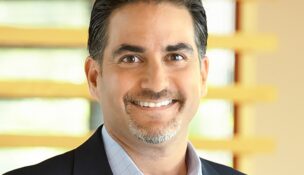Lessons in Leadership for Overall Success
Pet Age Staff //October 30, 2019//
BY DUSTIN SIGGINS
Ricky Ray’s National Football League career ended 37 years ago. Now 62 years old, he uses what he learned on the field to run a 30-person team providing print marketing materials for the World Bank—and to help former NFL players adjust to the post-playing world.
“My role is to lead and inform players in their transition from the playing field into life after football,” Ray said. As president of the Washington, D.C., NFL Players Association Former Players Chapter, he seeks to “empower [players] to improve their quality of life and encourage them to positively impact the communities in which they live.” There are approximately 150 players in the chapter, and they tackle issues from community service to traumatic brain injuries.
Whether he’s in D.C. with players or leading a team with worldwide impact, Ray attributes his managerial success to what he learned on the field. His ability “to work with diversity” and “being prepared when opportunity knocks”—the latter of which he notes “some call ‘luck’”—comes from his playing days. He says excellent teams have “commitment to performing your best and they [work] together for success,” and leaders provide “career development.”
The most important characteristics Ray looks for when hiring are a desire to learn, the use of “past experience to contribute” and the desire “to contribute to the overall team success.” As staff rise through the ranks, he empowers them to “engage, be innovative and stay current” in order to succeed. “Finding the right person is finding a driven, determined and nice person,” he said.
Hiring the right person also takes being the right leader. James Boening runs a Lexus dealership in the Baltimore, Maryland, area. A 25-year veteran of entrepreneurship in diverse fields such as automobiles, finance and construction, he spoke in July at the Silicon Valley-sponsored America Venture Capitol Conference about the future of the automotive industry.
“I don’t believe you can find the right people without you as a leader having the moral compass to align the team,” said Boening, who said “character and passion” are the most important principles for a great team. “Passion will keep you motivated when everything around you is perceived to be falling apart. Without the passion to lead in [these] times, you lose people.”
Boening said his key to success is “doing everything in my power to step away from the status quo. I am constantly asking myself, ‘How do I do this different for my team?’” Boening said he has “eaten some bullets with this approach,” but that “it was always worth it. If it works really well, break it down and tear it apart; I bet there is a better way.”
One of Boening’s other leadership keys is removing his ego from the equation. Early in his career, he “made people do things my way, and [I] wanted no feedback.” He realized that great leaders “ask people for help and work others outside your industry for insight. I have come to realize that showing people my way and doing it with them” must be followed by weekly meetings which focus on “looking for holes.” Boening then asks his team “for their insight to what they are experiencing,” which has led to “some of the most amazing ideas from some of the least expecting people.”
According to Boening, “all you have to do is listen” to your team to help them—and you as a leader—succeed.
Both Boening and Ray rely heavily on character for their success. “Marketing Ricky Ray as a former player with legacy in the game along with being a good person is priceless,” said Ray. And while Boening spends all of his marketing dollars online, 40 percent of his customers come to the dealership. Boening’s team motto is to “meet the client where they want to be met,” and “for those who show up” in person, “we do everything we can to be ultra-transparent and to wow them when we have the chance” in person.
A final characteristic of a great leader is letting people go when the time comes.
“Staff usually fire themselves,” said Ray. Donnell Johns, the former top non-commissioned officer in human resources for the U.S. Army National Guard, added that a company culture “should give them ample opportunity to integrate because everyone is trainable.” Should an employee have to leave, Johns concluded that “it may be best to part ways gracefully” and “understand the departing employee’s perspective.”



















